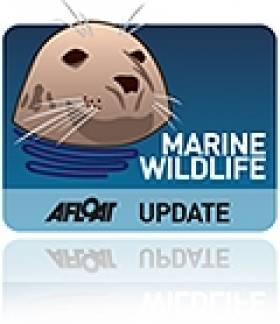Displaying items by tag: concern
Michael Viney writes in The Irish Times on growing concerns over lion's mane jellyfish and other harmful species in Irish waters.
The lion's mane is among the largest jellies found in Ireland and comes with a powerful sting, enough to disrupt "the stoical bliss normal to Dublin's Forty Foot bathing cove".
"Last year, the jellyfish was even more abundant in the Irish Sea than in 2009, and sightings from ferries found them from coast to coast," says Viney, who notes their and other jellies' dangerous effects on the marine industry and ocean ecosystems.
The decline of certain plankton-feeding species such as herring due to overfishing, coupled with a rise in sea temperature, has led to a marked increase of jellyfish of many different species in our waters such as the mauve stinger, which is blamed for decimating a Co Antrim fish farm's entire salmon stock.
The Irish Times has more on the story HERE.
























































